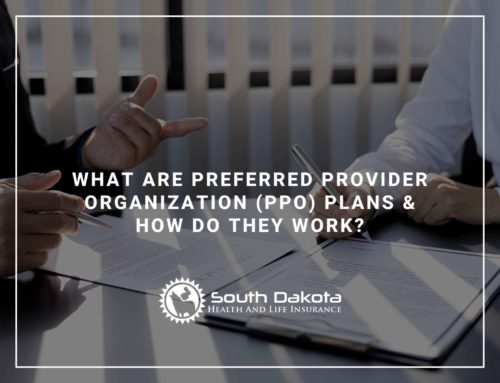Health Insurance vs. Health Sharing Plans: Understanding The Differences
The Basics Of How Health Insurance & Health Sharing Plans Compare To Each Other
As insurance open enrollment comes around each year, health insurance costs go up, becoming a continued source of stress for individuals and families. People who are not eligible for a tax credit may feel stuck between a rock and a hard place as they struggle to choose between expensive monthly premiums or going without coverage altogether, which means paying the substantial tax penalty for not having insurance.
Many individuals don’t realize that there is another alternative, known as health sharing plans. Although these plans aren’t the best option for everyone, they can potentially save your family a lot of money. Let’s take a look at the basics of how health insurance and health sharing plans compare to each other so you can make the best decision about South Dakota health insurance plans for yourself and your family.
How Health Sharing Plans Work
Health sharing plans are provided through organizations whose members share medical costs. Each individual or family is responsible for paying a predetermined share amount each month, similar to an insurance premium as well as an annual amount for their own expenses. Each incident or expense will need to exceed that annual unshared amount before the members can share the remainder of the healthcare expenses.
South Dakota healthshare ministry plans tend to be much more affordable than traditional insurance, although families will need to pay for smaller bills and incidents on their own. The unshared amount will vary between plans, but is typically a few hundred to a few thousand dollars, depending on the plan and how many people are in the membership. The monthly cost can range from as little as $60 up to $600 or more, depending on the individual plan and what expenses are eligible for sharing. Once the base amount has been exceeded, the medical expense is shared by the organization members.
Health sharing plans from South Dakota health insurance brokers can be a great option for people who:
- Are in good overall health
- Don’t qualify for income-based insurance tax credit
- Missed open enrollment and cannot get coverage until the following year
- Only need or want coverage for catastrophic events
- Cannot afford traditional health insurance premiums
- Prefer alternative medicine treatments
Many health sharing organizations are religious based. You may not necessarily be required to declare that religion in order to join, but you will be asked to agree to certain lifestyle or moral standards, such as not using tobacco or abusing alcohol. Many health sharing organizations will not pay for services they deem unethical, such as birth control.
How Health Sharing Compares to Traditional Insurance
South Dakota healthshare ministry plans are not technically insurance, but qualify as insurance under the Affordable Care Act (ACA). This allows families to take advantage of more affordable healthcare benefits while also avoiding the tax penalty for being uninsured.
Health sharing plans offer a wide variety of benefits. They are often more flexible than traditional insurance coverage because they do not have in or out of network providers. You can see whichever provider you want, and then request the cash discount while sharing your bills with your health sharing plan. This keeps costs low for everyone. Instead of paying an annual deductible, members will typically pay a much, much lower amount per incident before members will cover the remaining amount of their medical bills. Additionally, the monthly premium amount is also typically much lower.
You’ll discover some drawbacks of health sharing plans. For example, although your monthly payment is lower, you may be required to pay cash for basic preventative care visits or smaller incidents that don’t meet the minimum amount. Most South Dakota healthshare ministry plans do not cover pre-existing conditions. Your membership may be declined or your conditions won’t be eligible for sharing for a certain period of time. For some people, a traditional insurance plan may be a better choice.
Which Type Of Insurance Plan is Right for You?
Ideally, families could pay for a South Dakota health insurance plan that provides maximum coverage for all of their needs. However, these plans are prohibitively expensive for most people and may require certain qualifications. If you’re unsure what type of plan is best for your family, contact a friendly South Dakota health insurance agent who can walk you through all of your options and help you find the best plan for your needs, whether that is a traditional insurance plan or a health sharing plan.
Experienced Health Insurance Agents In South Dakota
South Dakota Health Insurance is dedicated to helping you find a health care plan that will fit your needs. Our experienced agents will help you find a plan that fits your budget while providing all of the services you need. Whether you are seeking a health sharing plan, Medicare, Medicaid, or one of our traditional health insurance options, we are ready to guide you through every step of the process. Give our office a call today to get started with the coverage you need!
South Dakota Health Insurance
Tel: 605-653-3824
Email: [email protected]






